The Night Manager, BBC One’s gripping new spy drama that’s been thrilling Sunday night audiences – and set Tumblr aflame with images of Tom Hiddleston’s bum – is out now on DVD (pause buttons at the ready!).
A slick, updated adaptation of John Le Carré’s 1993 novel that sees a former soldier recruited to infiltrate the confidences of an arms dealer, it boasts a fine cast; including man of the Gif-able moment, Tom Hiddleston; international treasure Hugh Laurie; and the embodiment of Britain and goodness itself, Olivia Colman.
It also follows in the great tradition of the British espionage genre on TV – a tradition that we’re about to spy on ourselves, as we look back at some of the best spy shows Blighty has ever sent out onto our screens, often armed with nothing more than a dashing lead and a licence to be suave.
Because when it comes to putting espionage on the screen, nobody does it better…
Danger Man
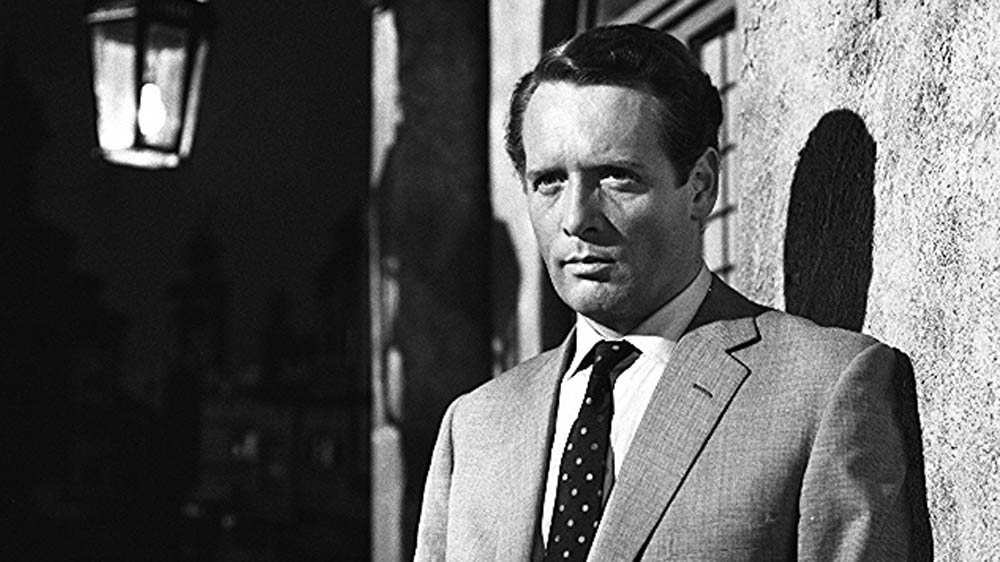
It was the early 1960s. The dawn of the jet age and the space race. The world was becoming smaller just as the war was getting colder. As East and West rattled big weapons and bigger threats, Ian Fleming was churning out Bond novels almost as fast as he drank. No wonder ‘Spymania’ was all the rage. Into this atmosphere, and onto the UK’s screens, came Danger Man.
Danger Man saw NATO agent John Drake being called in for what he described as any ‘messy job’, which usually meant him practising fisticuffs in a foreign locale, from Kashmir to Rome. Played by Patrick ‘Number Six’ McGoohan, Drake was a sort of TV James Bond with the vices and more violent tendencies sanded away.
He was suave, well suited, assumed identities readily, and he had more than a few gadgets at his disposal (more than Bond, in fact), but he never carried a gun and rarely engaged romantically with the ladies. McGoohan was adamant that Danger Man be a family friendly show. So long as you consider a man punching a lot of people family friendly.
The Champions
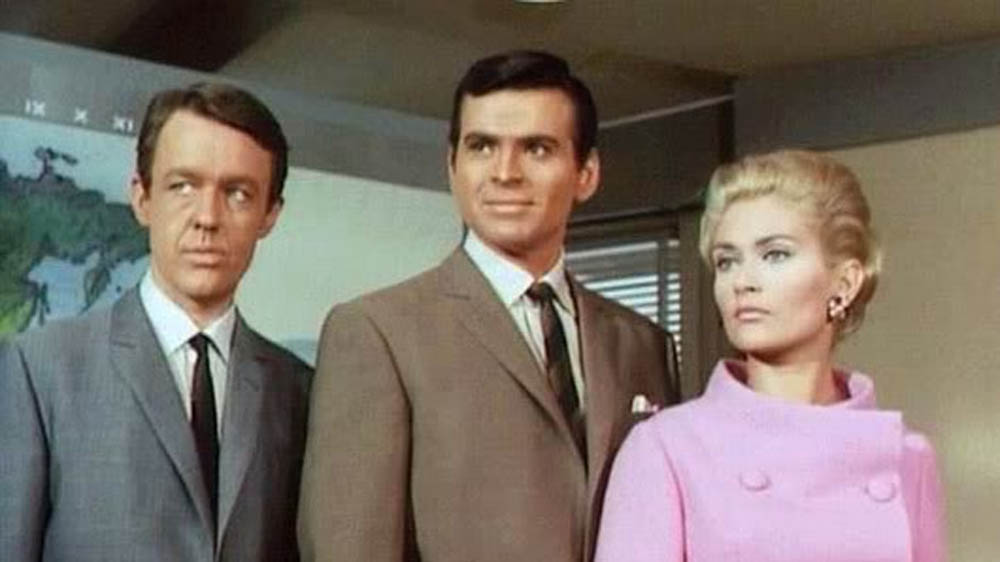
Oh, you know how it is: one minute you’re in a plane crash in the Himalayas, the next you’re being granted extra-human abilities by an advanced Tibetan civilization.
Then it’s just the usual day at the office fighting Nazis in South America, foiling Welsh cryogenic enthusiasts, and (thanks to budget constraints) taking part in an unusually high number of adventures involving a submarine…
1968s The Champions was one of the earliest examples of what we now unfortunately refer to as ‘spy-fi’, and saw agents of ‘Nemesis’, Sharron, Richard, and Craig attempting to master their precognition, telepathy, and heightened psycho-physical abilities in order to foil those with plans of global domination.
It was the Sixties, everyone was trying to take over the world, and it was blummin’ exciting. Not only were the trio secret agents, they were secret agents who have to keep their super powers secret from even their boss, Tremayne. So, super-super-secret agents.
The Saint
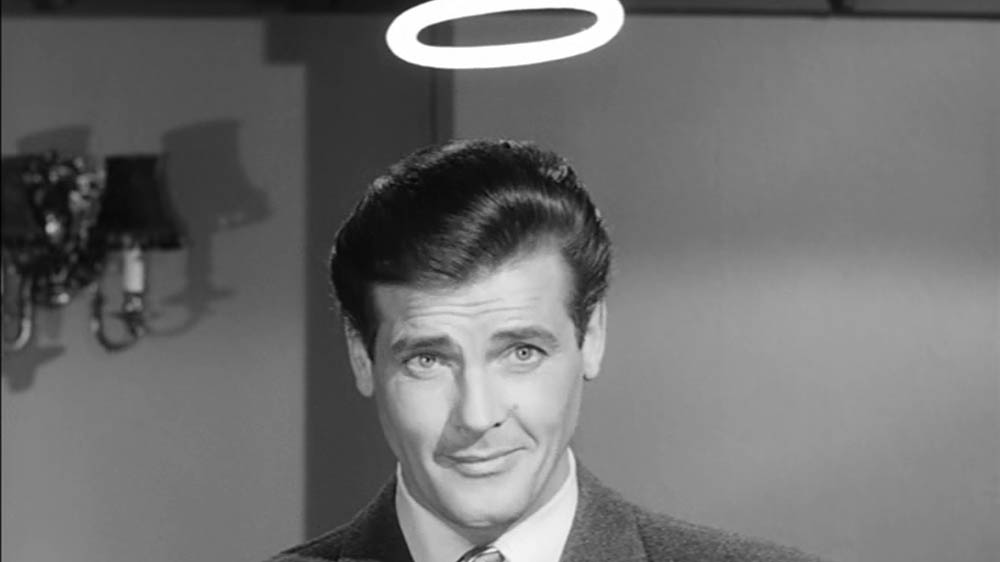
Danger Man himself, Patrick McGoohan, auditioned for the role, but it was Roger Moore – post-knitwear modelling career and pre-Bond (though he’d be offered the role twice during filming) – who became Simon Templar, aka The Saint, in the ITC adaptation of Leslie Charteris’ novels.
A thief/private investigator/man who looks great in a suit, Templar was the kind of smooth rogue that you don’t see anymore. The sort who just gadded about the planet being suave and sorting out problems, often at the request of attractive young women.
His adventures ranged from tricking Australians into buying shares in a silver mine, to foiling assassinations, and even avoiding being a guinea pig for cryogenic freezing trials in Cornwall. What can you say, the man led a rich life, and young Rog ensured that he looked effortlessly cool while doing it.
The Avengers
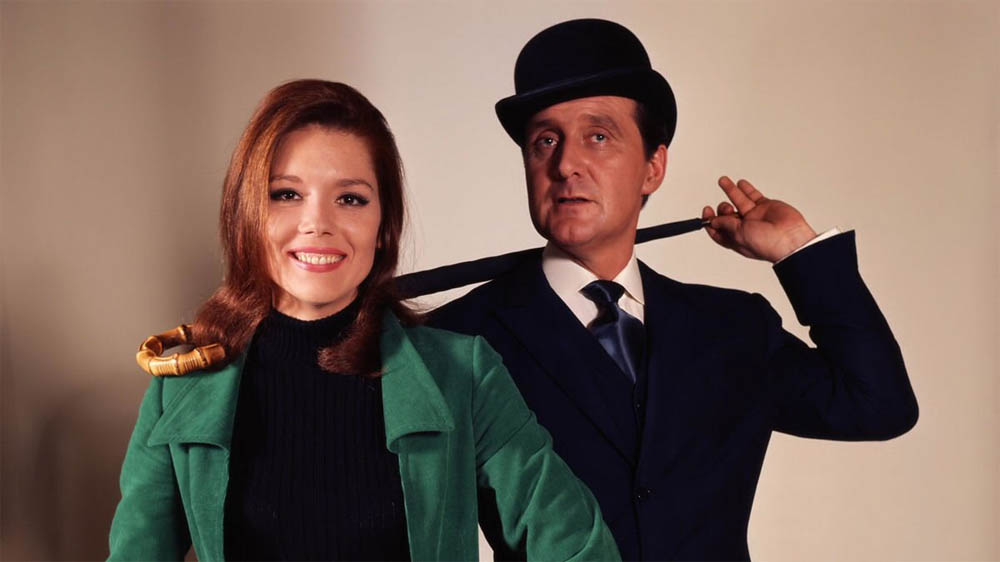
Yes, the proper Avengers, not Marvel’s quippy-explodey superhero squad (though our British team only beat the comic book group by a little under two years).
And who do you think of when you think of The Avengers? Chances are it’s not bereaved old Dr. Keel and Steed. More likely it’s with Steed and Gale. More likely still it’s Steed and Peel. They’re the duo that most people see a mental image of when they hear The Avengers. And no, of course, I’m sure it’s nothing to do with Ms Peel’s outfit in ‘A Touch of Brimstone’. Not. At. All.
Patrick Macnee and Diana Rigg were the most memorable ‘agents extraordinary’; avenging extraordinary crimes against the people and the state in a manner with far greater levity than previous. Earlier years skewed toward serious espionage (microfilm, flasks of rocket fuel), but now we had the spy-fi fun of carnivorous alien plants, invisibility formulas, shrink rays, and Cybernauts.
The one thing you could rely on throughout the swinging Sixties madness? A nice glass of champers at the end.
Tinker Tailor Soldier Spy
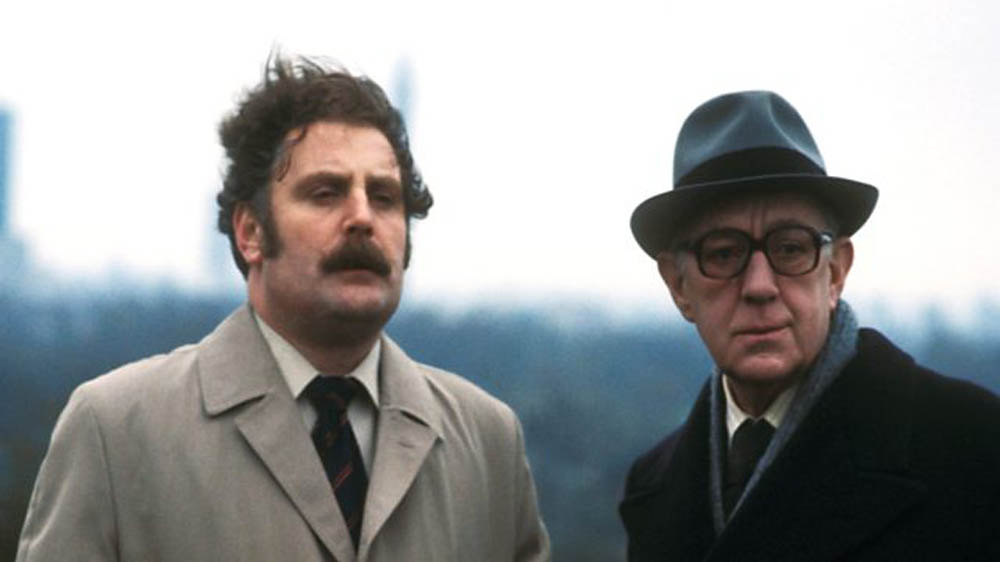
The grand-daddy of spy drama, the BBC’s 1979 adaptation of John Le Carré’s novel, published only 5 years earlier, is still the definitive TV spy serial. ‘If I were going to keep one filmed version of my work, this would be it’, Le Carré was quoted as saying in 2002 (so of course he hadn’t seen 2016’s The Night Manager!) and despite the number of excellent adaptations of his work over the years, you can understand why.
Tinker Tailor’s legacy of quality is largely down to its cast, which features some of the finest actors of the age, including Ian Richardson, Beryl Reid, renowned character actor Michael Aldridge, and even a rather young Patrick Stewart. But it’s Sir Alec Guiness, armed with little more than a big pair of spectacles and a melancholic flex of the mouth, that everyone rightly remembers.
Compared to the modern spy genre you might find it slow, when it is in fact methodically paced. Yes, there is a difference. Tinker Tailor isn’t flashy, nor is it meant to be. It’s a gripping, dour portrayal of spying for what it really is; a lonely, unglamorous, cigarette-stained, mistrustful place to find yourself in. But as a viewer, sharing that space is a gripping experience.
Spooks
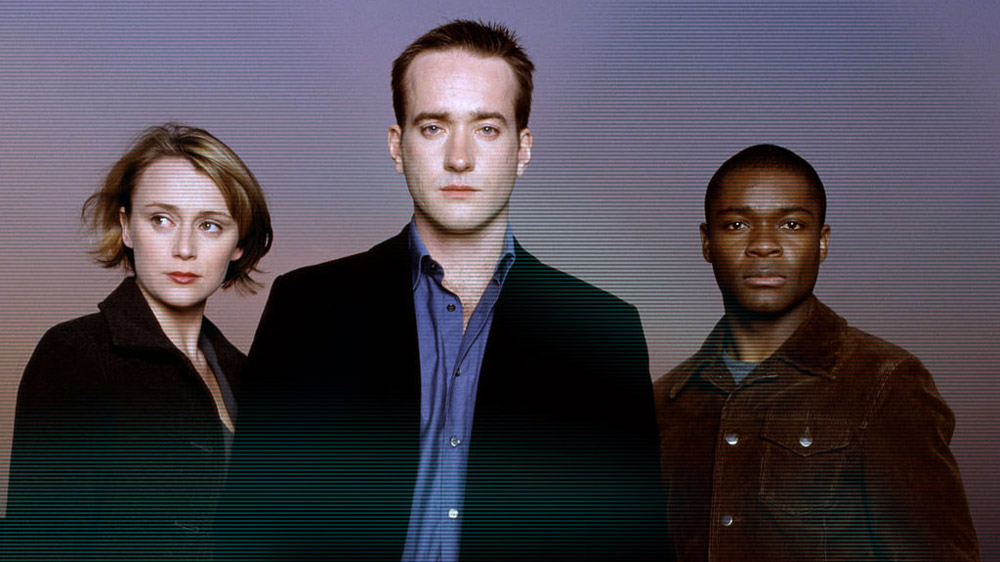
2002 was a febrile place for international relations and worries over international terrorism. Perfect fodder for a show about MI5’s finest then. And yet the first episode of Spooks passed with little notice. It was only the second episode when Lisa Faulkner’s Helen Flynn was shown the business end of a deep fat fryer that the show drew notice (and plenty of complaints). But in doing so it demonstrated what would be one of the key strengths of the highly successful spy drama across its ten year run: a ruthless unpredictability in killing off characters.
Deaths often happened surprising and shocking ways, and the writing and performances were so good, they really made you feel each and every one.
Helen Flynn was the most shocking, Ruth’s may be the most poignant, but if you’re looking for an example of how cruel, dramatic, and well-executed (no pun intended) Spooks could be, look no further than poor Colin Wells’ murder in the woods at the opening of Season 5.
The Night Manager
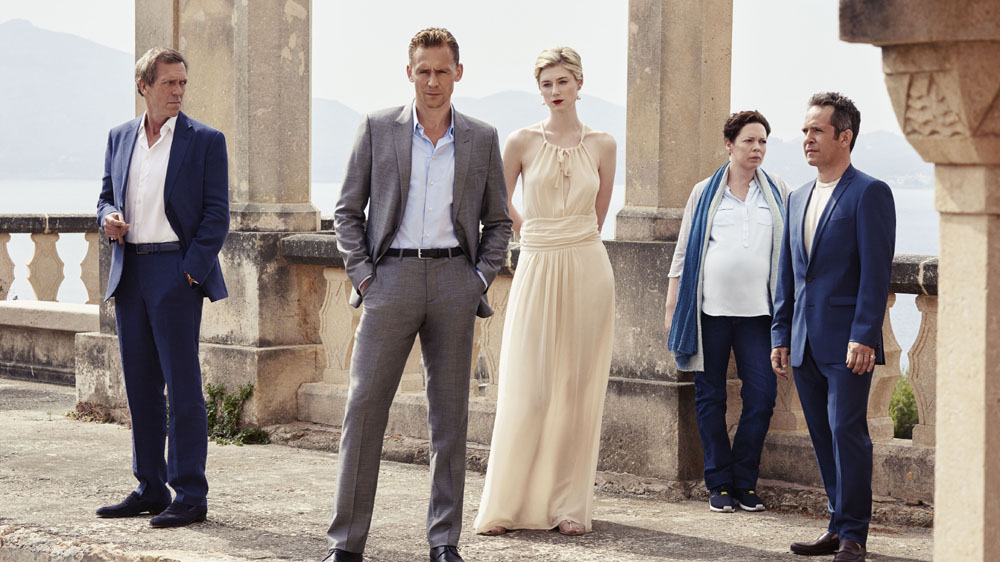
Who said Sunday night drama on BBC One was just midwives and Cornish tin miners? Well, no one. I only just said it now. But The Night Manager‘s been such a success, regularly getting 6m viewers, that talk has naturally started of Auntie Beeb adapting more of Le Carré’s works.
Hopefully they’ll be as star-studded and well filmed as The Night Manager, which follows ex-soldier Jonathan Pine as he’s sent undercover to bring down ‘the worst man in the world’; the wonderfully slimy arms dealer Richard Onslow Roper.
In the best traditions of spy drama, it’s an international world of glamour and sex and immediate danger; one which presses him between the equally ruthless parties of intelligence and arms dealing.
> Buy the complete series on DVD on Amazon.
The Night Manager is released on DVD and Blu-ray on Monday 28 March 2016.
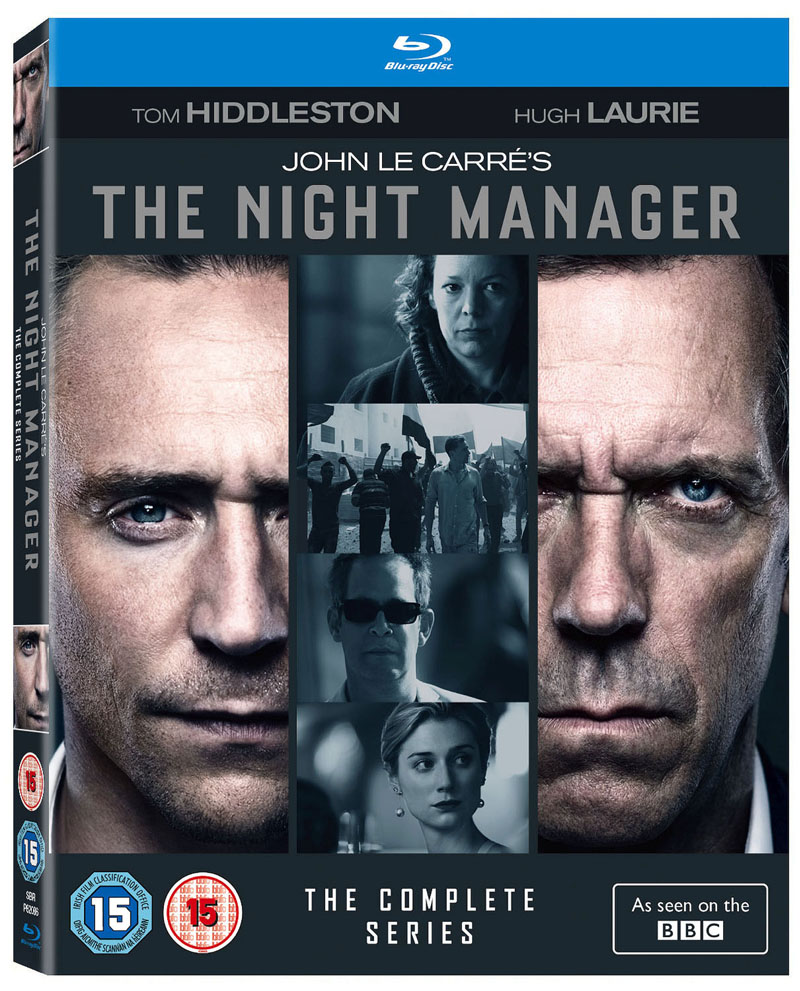
What’s your favourite British TV spy shows? Let us know below…

